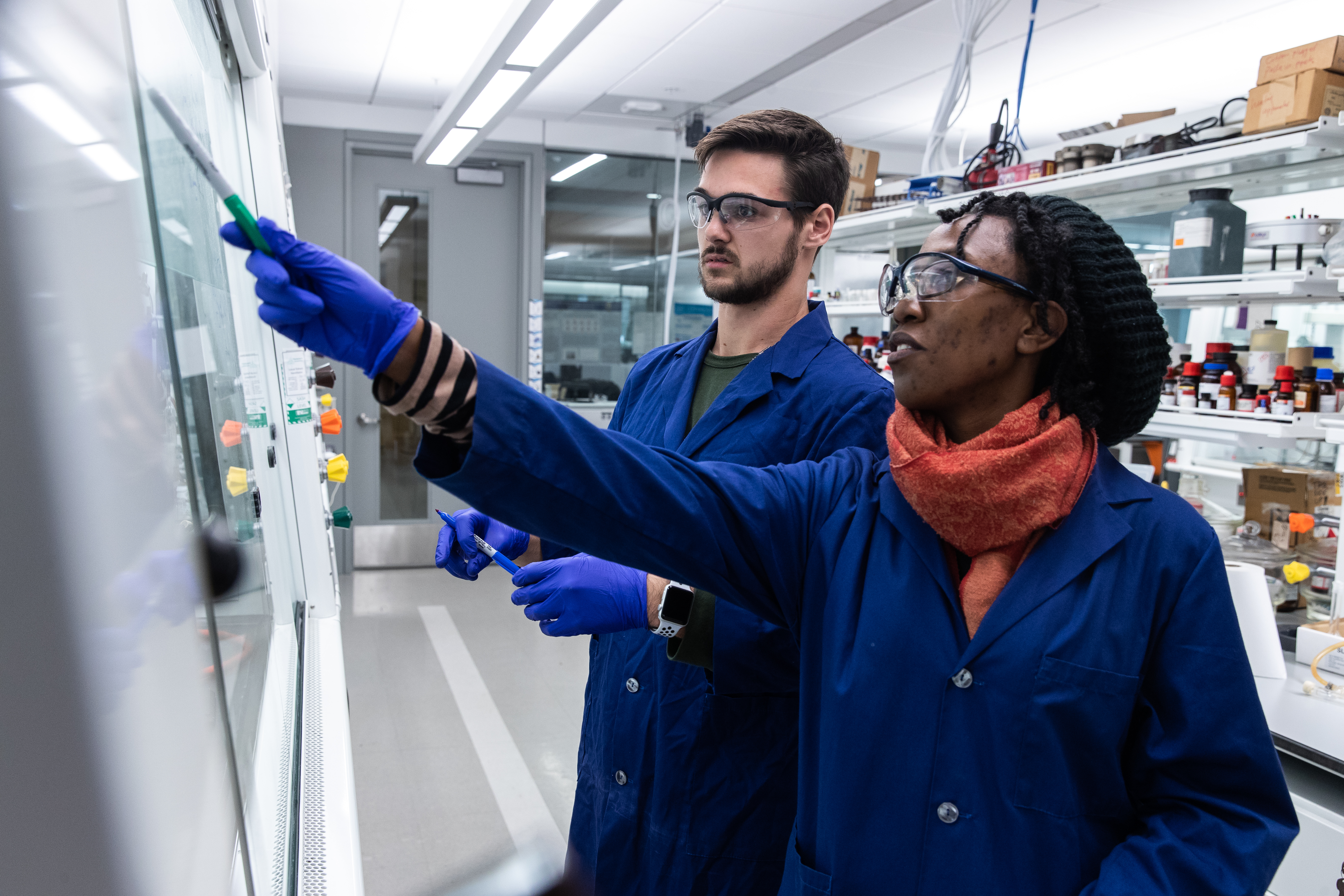Over the past fiscal year, Columbian College of Arts and Sciences’ faculty submitted 187 research proposals and were awarded 62 grants from top research agencies to fund projects across the sciences, social sciences and the humanities. These projects ranged from research on climate change and a study on COVID-19’s impact to examining the influence of social media disinformation campaigns and exploring the use of big data to predict human variability.
Total research expenditures (funds spent to conduct research) for the year reached $16.2 million, an increase of more than 20 percent over the previous year.
“As we work toward our goal to be a top research university, we are thrilled by the rigorous scholarship of our faculty and the important work they are doing to break new ground on the most pressing issues of the day,” said CCAS Dean Paul Wahlbeck.
The following list reflects grants of $100,000 and above awarded to CCAS faculty during fiscal year 2022:
Christopher Brick (History): $245,612 from the National Archives and Records Administration to support the Eleanor Roosevelt Papers Project.
Christopher Cahill (Chemistry): $750,000 from a cooperative agreement with the U.S. Department of Energy as part of a nuclear science and engineering consortium for nonproliferation.
Stephanie Cellini (Public Policy and Public Administration and Economics): $202,728 from Arnold Ventures LLC and $197,807 from the Joyce Foundation for a project on higher education equity and accountability.
Ana Maria del Rio Gonzalez (Psychology): $1,049,087 from the Centers for Disease Control and Prevention for Juntas Adelante, a peer-coaching intervention program to promote the HIV-prevention drug chemoprophylaxis among Latina transgender women in the Washington, D.C.-area.
Leon Grayfer (Biology): $276,018 grant from the National Science Foundation (NSF) to study Medicaid coverage of opioid use disorder treatment.
Sylvain Guiriec (Physics): five grants from the NASA Goddard Space Flight Center: $261,329 for the development of the ComPair instrument for observing all-sky medium-energy Gamma rays; $64,731 to study Gamma-ray burst prompt emissions; $278,885 for instrumentation and lab experiment for X-Ray Astrophysics; $75,657 for heliophysics and space environment research; and $3,920 to develop high-energy space instrumentation for sun observation.
Gustavo Hormiga (Biology): $499,294 from NSF to study the systematics and evolution of onychophorans (velvet worms), particularly the least-understood group of Onychophora, the Neotropical Peripatidae and their radiation around the Caribbean region.
Carly Jordan (Biology): $136,016 from NSF to further undergraduate participation in ecology and evolution research.
Vera Kuklina (Geography): $851,749 from NSF to study change, resilience and sustainability of frozen commons in Alaskan and Northeastern Siberian communities; and $115,200 from the Research Council of Norway for a project studying urban sustainability in action using a multi-disciplinary approach through jointly organized research schools.
Yonatan Lupu (Political Science): $299,768 from NSF to analyze whether current deplatforming strategies mitigate harmful communication throughout social media.
Arnaud Martin (Biology): $410,662 from NSF to study diversification in butterfly lineage.
Stephen Mitroff (Psychology): $449,690 from a cooperative agreement with the U.S. Army Medical Research and Materiel Command to use big data for evaluating and predicting human variability.
Marya Sergeyevna Rozanova-Smith (Geography): $660,422 from NSF to study the impact of the COVID-19 pandemic on women in the Arctic.
Chet Sherwood (Anthropology): $870,310 from the National Institutes of Health for a study on comparative epigenomics of primate brains.
Bryan Stuart (Economics): $142,176 from the Bill and Melinda Gates Foundation to explore the impact of customized job recommendations.
Rebekah Tromble (SMPA): $749,222 from NSF to study building trust in communication systems by addressing misinformation-driven online abuse and harassment; and $100,000 from Netgain Partnership to study platform data for independent research.
Adelina Voutchkova (Chemistry): $440,301 from NSF to study the efficient and minimally wasteful methods to prepare complex molecules from renewable starting materials containing carbonyl groups.
Sarah Wagner (Anthropology): $981,597 from NSF for her project “Memorialization, Contested Knowledge and Incomplete Mourning in the Context of COVID-19.”
Yanxiang Zhao (Math): $160,538 from NSF to study computational modeling of complex structures.


